A liberal arts degree can prepare students for a wide range of careers. It provides students with an excellent foundation for their future by enhancing the ability to research, analyze and communicate abilities.
Employers value these skills and consider them more important than technical skills when looking for new employees. Additionally, liberal arts graduates develop the capacity to continue learning throughout their lives.
Career Value
You are a part of an old tradition when you earn the liberal arts diploma. Through your studies you’ll be able to ask tough questions, create new knowledge through research and express yourself with confidence and clarity in writing and oral communication. These abilities are highly sought-after by employers.
You can develop critical thinking skills and skills for communication that can be transferred across different industries, regardless of whether you are studying math, art history or literature. It is essential to be able to comprehend the concepts of other disciplines for example, the ability to understand and read an Excel spreadsheet.
90 percent of employers say that soft skills are more important than a specific major. That’s why a liberal arts education is essential for those in search of a job or to advance within their profession. The preferred education for CEOs like Howard Schultz, (Starbucks) Susan Wojcicki (YouTube), and Kenneth Frazier, (Merck) is a liberal arts degree. The most rewarding careers aren’t defined by a single discipline or one particular sort of job.

The benefits of a liberal Arts Education
The liberal arts curriculum is multidisciplinary and helps students gain skills in many fields that will help students throughout the course of their lives. Students who study the humanities, social sciences, science, and technology acquire critical thinking abilities that can be used for various careers.
Employers are increasingly looking for people who are able to communicate effectively and about things critically. A recent report from the AAC&U discovered that these “soft skills” are more important than specialist knowledge.
The liberal arts have the ability to give students an edge in the job market of today. Liberal arts graduates are also more flexible and are able to deal with economic fluctuations due to their ability to adapt to the changing demands of the job market. Moreover, according to the Knoxville News Sentinel, graduates who have a liberal arts education typically hold more than one position over their lifetime. This is different from those with a degree in a particular area such as business or medicine. Anyone who has a liberal arts degree is more likely to make a profit and be satisfied in the field they choose to pursue.
Liberal Arts Skills for Jobs
When it comes to careers employers look for competencies such as critical thinking, communication and collaboration. These are the abilities which liberal arts colleges impart and instill in their students. Whether they’re majoring in finance, computer science or human resources, a liberal arts degree can provide them with the competitive edge employers seek.
The liberal arts degree can also provide a broad knowledge of the. Employers appreciate the abilities that are acquired by studying languages, literature as well as philosophy, history art, and art history. Employers are also aware that creative solutions are possible by being able to think creatively and to view situations in different ways.
According to a recent survey of the National Association of Colleges and Employers more than 90% of employers rate communication and critical thinking skills as more essential than a specific specialization. The knowledge and skills acquired through liberal arts training can be used in any profession. Additionally, these skills are transferable across industries and even between jobs. This gives graduates more flexibility to adjust to changes in jobs and changes in the economy.
Liberal Arts graduates’ job market
It is widely believed that those with higher degrees in liberal arts are not well-prepared for working as compared to those who pursue more career-focused disciplines and over at this website https://baoxinviec.shop/. But, research has revealed several aspects that prove the case for a strong liberal arts education, and the positive impact on future employment.
One of the most valuable advantages of a liberal-arts degree is its interdisciplinarity. In USC Dornsife, for example, students study subjects all over the curriculum, from philosophy to sociology to art, in order to build a well-rounded intellectual base. This broad knowledge base assists students in understanding how various disciplines are connected to each other and provides them with the skills that are valuable for employers.
The communication and analytical abilities developed by an education in liberal arts can be useful in a broad range of career paths. For instance, a graduate of political science, for instance, can be pursuing a career in government, in non-governmental organizations as well as in public relations and marketing. The ability to change and think on your feet is an important skill to have in any profession.
The range of liberal arts degrees
The liberal arts degree allows students to develop their skills while exploring a wide range of disciplines. The result is a degree that can be applied to many different professions, even in industries that require technical qualifications. great demand.
For instance, a degree in history can provide graduates with the skills to work in fields such as museum curatorship or preservation of historical material. Fine arts degrees–music film, theater and music–provide graduates with jobs as artists or performers with a particular emphasis on communication skills will prepare liberal arts students for jobs in public relations and marketing.
A liberal arts education can also aid students in weathering the ups-and-downs of a volatile job market. The ability to recognize connections between different subjects–which is a key component of every liberal arts degree program–can also foster creativity and innovation which a lot of industry leaders value as essential traits for dealing with uncertainty and flourishing in today’s job market.

